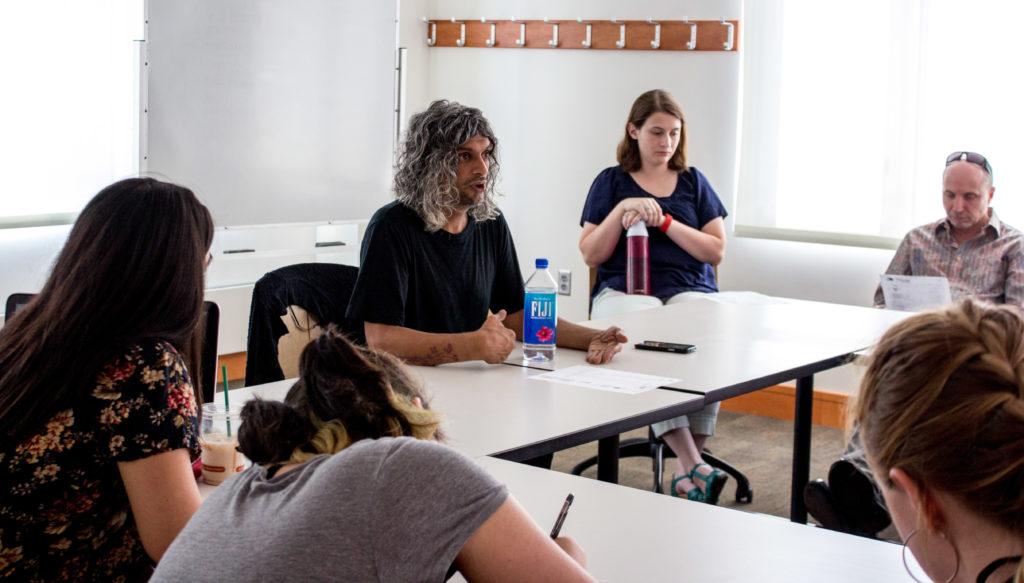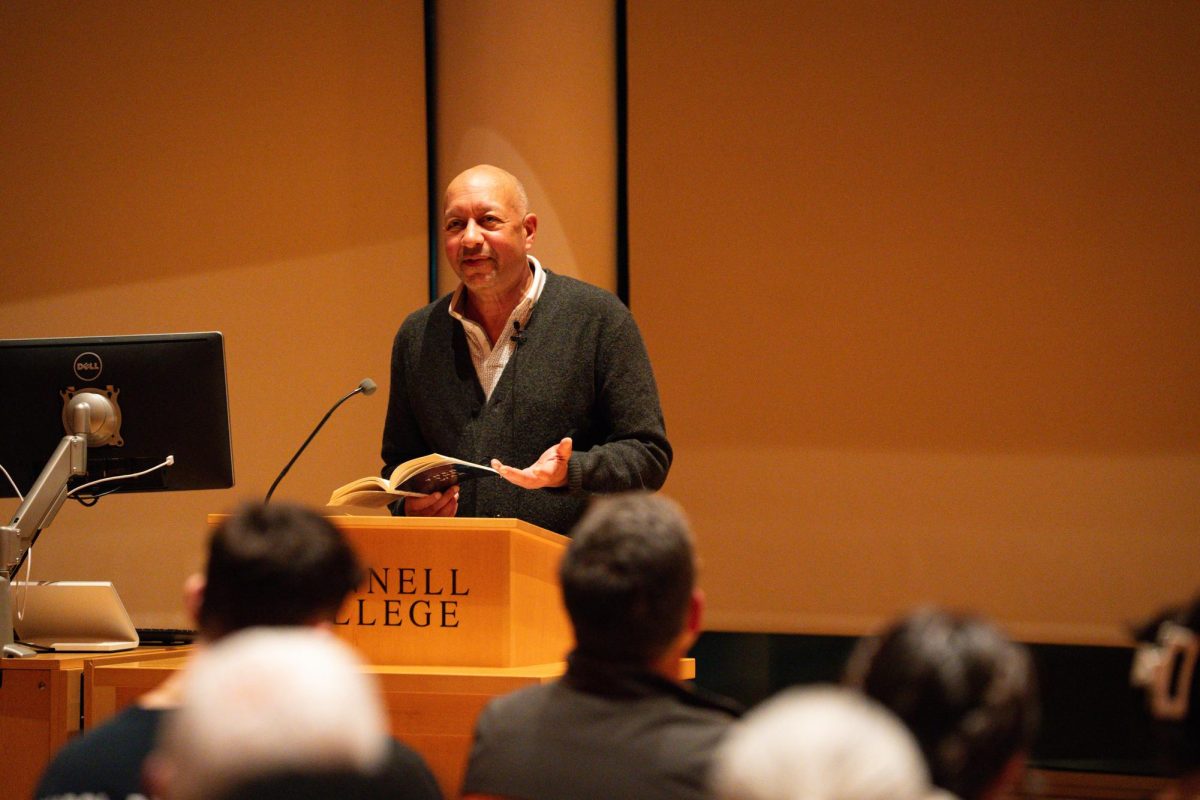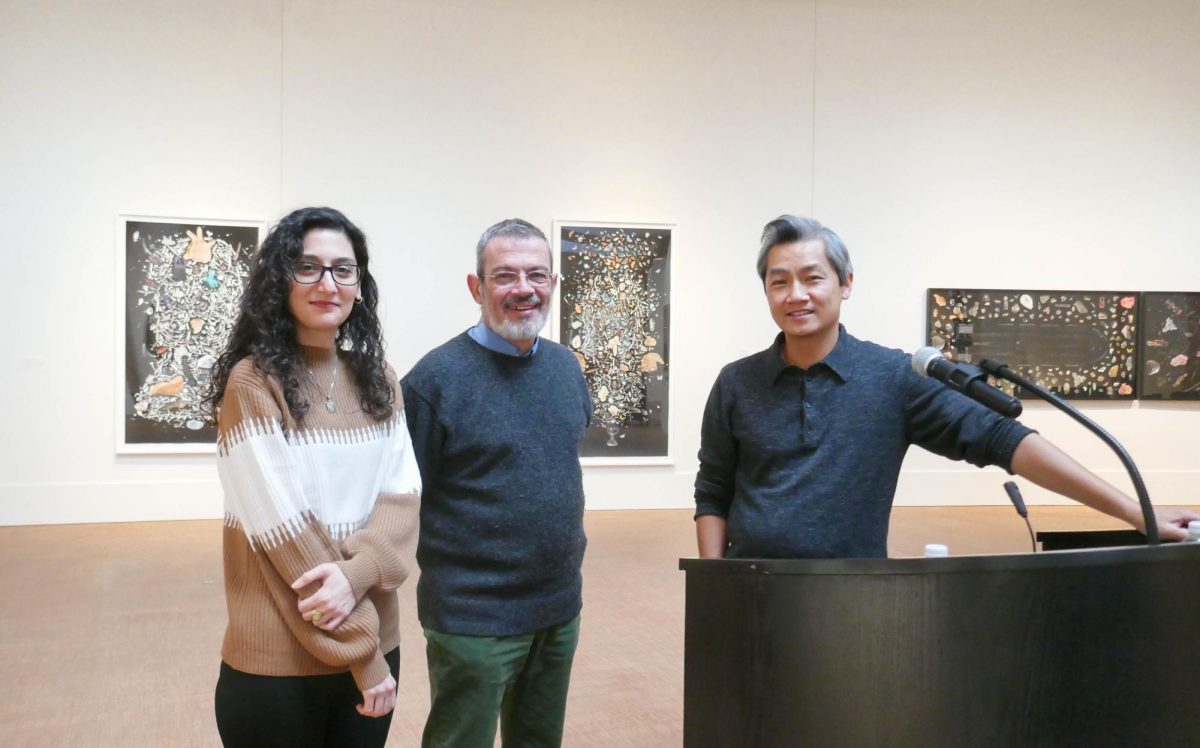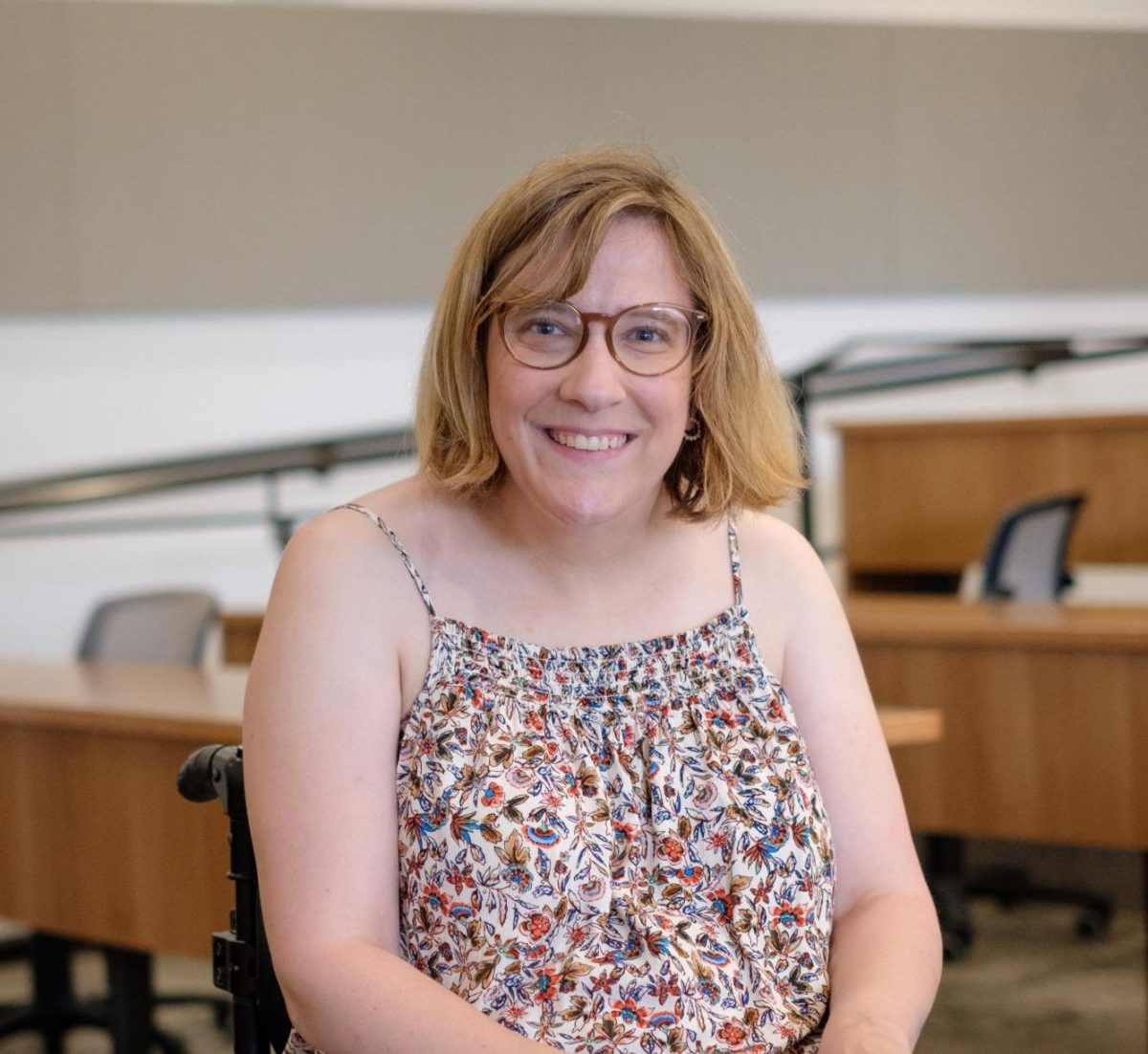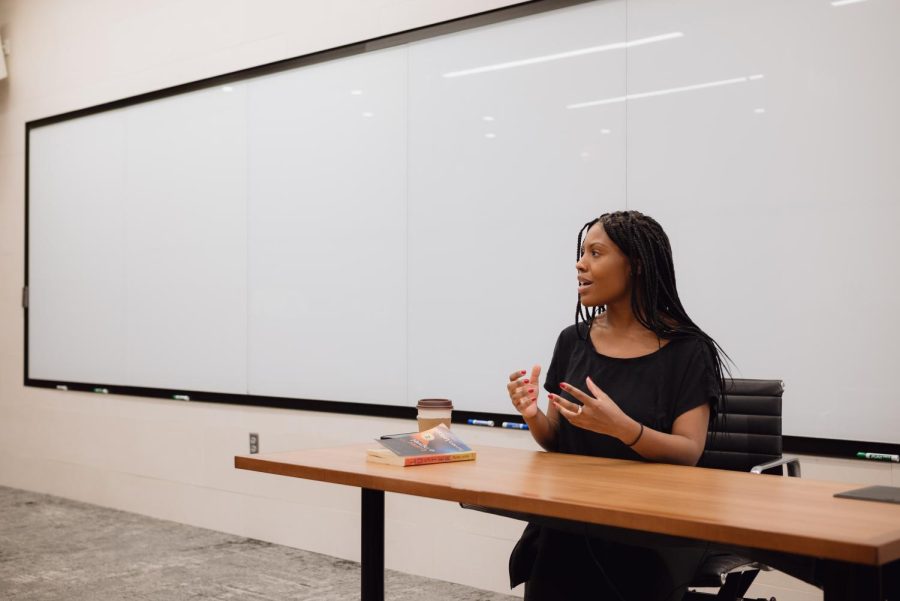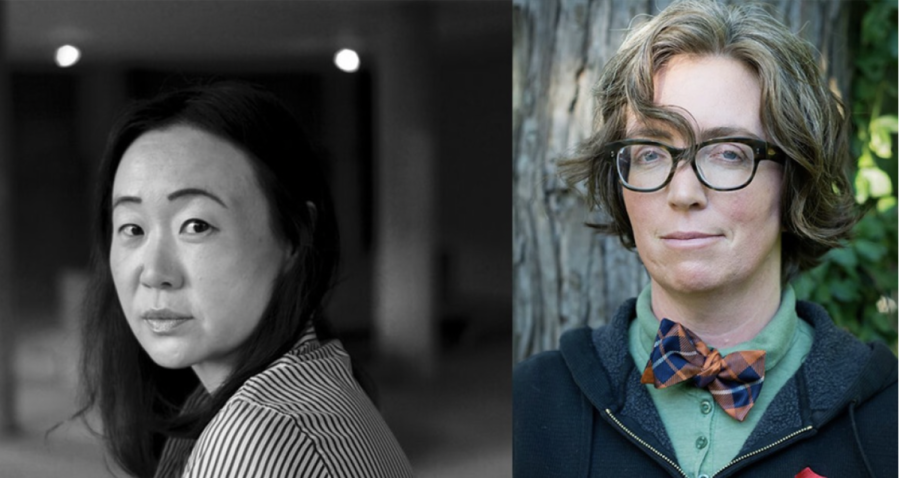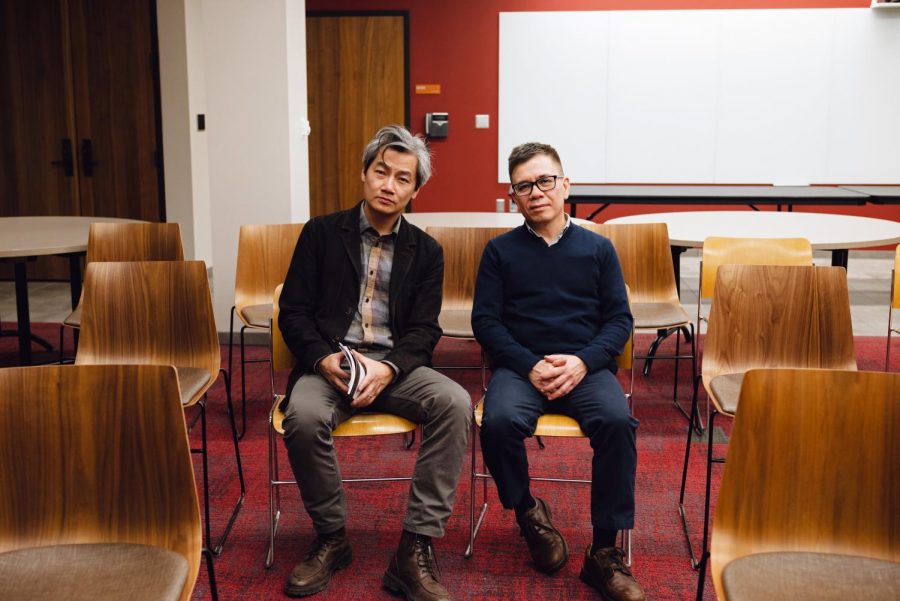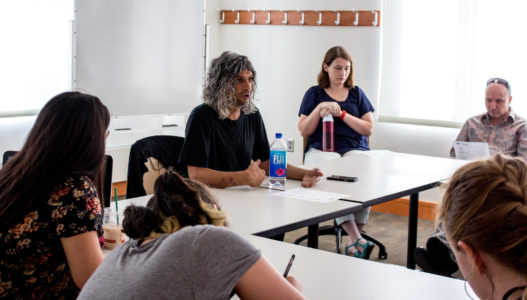
Poet, essayist, fiction writer and translator, Kazim Ali led the newest session of the Writers@Grinnell series this past Thursday, Sept. 22. Kazim has published several volumes of poetry, including “Sky Ward,” winner of the Ohioana Book Award in Poetry; “The Far Mosque,” winner of Alice James Books’ New England/New York Award and the genre-changing text “Bright Felon: Autobiography and Cities.” The S&B’s Megan Tcheng sat down with the associate professor of Creative Writing and Comparative Literature at Oberlin College while he reflected on his passion for writing.
The S&B: Where did your passion for poetry take root?
Kazim Ali: I listened to a lot of poetry growing up, although not all of it was in English — a lot of it was actually in Urdu and Arabic and a lot of it was devotional and spiritual poetry. I heard the rhythms of it and the songs built within it and I loved it. Then, after college, I started working as a political organizer and a lobbyist. During those years, poetry was always something that helped me and preserved me. I was always reading it, and I was always writing it. So, when I left organizing and was forced to figure out what I was going to do next, I found myself brought back to poetry. That led me down this path.
Over the course of your career, you have compiled an impressive portfolio of work. Where do you find your inspiration and, furthermore, how would you describe your writing process?
Every once and a while I hear a story or something happens in the news that draws me in. I start thinking about all of its implications, and it pulls me along. For example, in India, there was a temple that was devoted to a god that had two fathers — Shiva and Vishnu. The temple was sacred only to men, but a woman once went to the temple and made an offering. As a result, priests had to re-consecrate the temple, and the woman was arrested. I read this story, and I just thought it was so interesting. Who was considered clean, who was considered impure — all of these ideas about gender and spirituality started spinning around in my brain. I knew I couldn’t just write an essay about it — I knew I had to think about it in poetry. When I myself don’t know the answer, I turn to writing.
You come from a very diverse and multilayered background, with roots across the country, in India, the US, the UK and more. What effect, if any, has your cultural and personal background had on your career as an author?
I talk a lot about my early childhood, growing up in a multilingual household and my acquisition of language — which was all very unconventional to say the least. Nonetheless, I think [my background] has kept me open to different perspectives. It has kept me always questioning. The negative side is that I don’t have roots — I don’t have a home town or a mother tongue. At the same time, my lack of roots has created the poet in me. That’s why language is my home — because I have no other home.
Besides being a prolific poet, essayist and fiction writer, you also work as a translator. How does your perspective as a translator affect your approach to writing?
I continually feel affected and changed by the people I translate. When I translated Sohrab Sepehri, an Iranian poet, I started to adopt some of his strategies into my own poetry. He writes very long, lyrical and epic poems that go against the grain of contemporary American poetry. When I was translating his poems, I was really rewriting his poems into English. Doing a translation is precisely like doing a jigsaw puzzle — you’re not just trying to render it into English, you’re trying to make it into a good poem in English. It’s a really nice game to play.
As an assistant professor and the director of the Creative Writing Program at Oberlin, you spend a lot of time mentoring your students in the writing process. What words of advice do you give to your students and, more specifically, what wisdom would you pass on to anyone who is interested in pursuing creative writing?
I think it’s important to trust the value of your own vision and to keep reading deeply. Trust yourself to move forward and to continue creating new work. Don’t get too caught up in who is going to read it or what’s going to happen next. Just keep writing. That’s the best advice I could give to a student, a writer or even myself.




























































